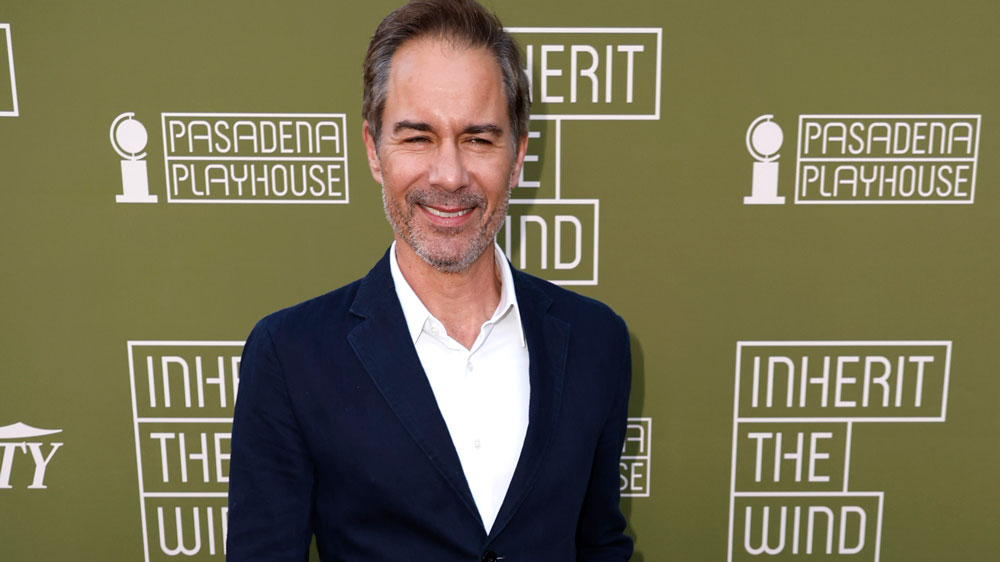September 21, 2016
Fascinating People :: Nat Segaloff
Kilian Melloy READ TIME: 12 MIN.
I've had the pleasure of interviewing Nat Segaloff before, most recently on the topic of Stirling Silliphant: The Fingers of God," his biography of the prolific TV and feature film writer who produced a number of scripts for classic television series like "The Naked City" and "Route 66," wrote films you've certainly seen (or at least heard of) like "In the Heat of the Night," "The Poseidon Adventure," and "The Towering Inferno" -- to sample only three of his many credits -- and who also basically introduced Bruce Lee to America.
We've also discussed Segaloff's amusing and fascinating (if slightly morbid) book "Final Cuts," which details the films a number of famous directors were working on or had just completed when they died.
Segaloff has penned books about other entertainment luminaries, including John Huston (a book written decades ago but only recently published) and sci-fi heavyweight Harlan Elllison (a biography slated to soon see print). Now, in the memoir "Screen Saver," Segaloff turns his storytelling acumen on himself -- or, rather, his dual career as a film publicist and film critic. It's a breezy account that underscores the strangely schizophrenic nature of the business: The oversized personalities and the underwhelming glories of the day-to-day grind in a machine that specializes in manufacturing illusions. Segaloff's prose also conveys the twinkle in his eye -- something that is very much present in the head shot he supplied to run with this interview.
One book we not discuss (but film buffs ought to check out) is Segaloff's bio of Arthur Penn, director of (among other highlights) "Bonnie and Clyde." Ah, well.
I'd rattle on about Nat, but -- no stranger to the game -- he provided his own remarks to use as preface for a recent interview he graciously granted me. Who am I to further delay Nat's home-brewed introduction?
Dear readers, the fascinating Nat Segaloff.
Before he moved to Los Angeles to produce TV documentaries and write books and plays. Nat Segaloff was a Boston movie publicist for the Sack Theatres chain (now defunct) and various studios. Then he became a critic (WEEI-FM, WBZ's "Evening Magazine," "WSBK's "Movie Loft & Company," The Boston Herald, etc.). When he reported on Hollywood, his insider's knowledge sometimes drew the ire of the people he used to work for. In Screen Saver: Private Stories of Public Hollywood, Nat describes his funny, strange, tense, and sometimes poetic adventures with such people as Paul Newman, Michael Caine, Jane Fonda, Robert Altman, Otto Preminger, and other filmmakers and industry figures he met and worked with.
EDGE: "Screen Saver" is a memoir, but it's not like any memoir I have ever read. It's not chronologically linear; it's not the story of your life, so much as your dual career paths as a publicist and film critic. How (and why) did you arrive at this formula?
Nat Segaloff: I realized the moment I started writing it that nobody would give a hoot who I was, but they might stick around for some name-dropping. I purposely wrote the book from the point of view of an observer even if I was a participant. The episodic structure - can we please call it picaresque? It sounds more impressive - is because I would usually work for somebody for a couple of days, say on a press tour, and then never see them again. Hell, my life is episodic.
EDGE: Being a Boston theater and film critic myself, I was thrilled to see your anecdotes about local characters, not to mention shout-outs to people like my fellow EDGE colleague Kay Bourne. How do you remember all these people and stories? Did you keep a journal? Were the experiences you describe in the book so fun they indelibly impressed you?
Nat Segaloff: It was my privilege to work with people like Kay Bourne for five years when I was a publicist and fifteen more as a colleague, and then to stay friends. With one exception whom I won't name the Boston movie press was exceptionally cordial to one another. You'll have to tell me what it's like today, what with newspapers (The Boston Phoenix) folding and others reducing or cutting their arts coverage, which is an obscene decision. As for the celebrities, I did, in fact, keep notes - remember Mae West's advice, "Keep a good diary and some day it will keep you?" Besides, if you'd survived two days being yelled at by Otto Preminger wouldn't you jot it down?
EDGE: You started your career in 1970 and you saw Hollywood and the movies change dramatically over the course of the years. You identify "Jaws" as a major turning point, when -- you say -- studios stopped making movies that they then courted and coaxed audiences to come and see, and started to make movies based on what they thought people would want. Obviously, that's been bad for movie making, but has it also corrupted the culture in a larger sense? Does "giving the people what they want" have a systematic effect of shrinking out critical faculties, our attention spans, the breadth of our minds?
Nat Segaloff: Giving people what they want is fine for restaurants but not artists. An artist is supposed to inspire people to grow, to think, to feel, and to consider new ideas - not excrete "Transformers 5."
The film companies used to do a pretty good job in the days when the production division made movies that they really hoped would be interesting and different. Then they turned them over to the distribution division to find an audience based on originality. It worked pretty well for 60 years.
Around the time of "Jaws" in 1975, however, the parent companies realized that the distribution end was making all the money and the production end was spending it, so they had the idea to switch the two and have the distribution people tell the production people what to make. The problem was -- and has become - that that kind of manufacturing system (cars, toilet paper, McDonald's, etc.) depends on consistency, not individuality.
Show business is different. It sells experience, not gizmos. You can never sell the same experience over and over again. Hollywood refuses to understand this, but the public does, which is why they're staying away. The dollar grosses may be up, but the number of admissions is down. That's the dirty secret.
EDGE: You describe some interesting friendships, such as that you shared with Dom DeLuise. Having seen fame up close, what did you take away from it? Is it a dangerous or corrosive thing? If you could be as famous as DeLuise, or others you mention in the book, would you want to be?
Nat Segaloff: I had a brush with fame when I was on WBZ-TV's "Evening Magazine" from its 1977 debut to 1979 (why I left will be in my next book). I was also highly visible - make that audible - on WEEI-FM, the CBS Softrock station in Boston. I was occasionally recognized in public but nobody ever knew my name; I was always "that guy on that TV show." I learned an incredibly important lesson from this: television conveys impressions, not facts. When you watch television it goes through your eyes and into the part of your brain that likes opening the refrigerator, closing the refrigerator, then opening it again thirty seconds later to see if anything has changed.
Fame is not normal. Neither are Pringles, but nobody interrupts a Pringle while it's having dinner in a good restaurant to ask for an autograph. It's not normal for a total stranger to pose with you for a selfie and insult you if you politely decline because you're with your family. Dom DeLuise handled it amazingly well; he had that magic about him. He could say anything and get away with it. He'd have a table full of unrelated people over for lunch and the first thing he'd do is ask the newest person in the group, "How did you lose your virginity?" He was always watching his weight but joked about it, saying, "I'm on two diets because you don't get enough to eat on one diet."
Some celebrities handle it well, others don't. I was talking to Brad Pitt and Angelina Jolie backstage after a friend's play opening when someone started to take their picture. Pitt barely moved; he simply mouthed "no" and gave them a subtle a facial gesture and that was enough to do the trick. On the other hand, when John Travolta became an overnight sensation he was so heavily guarded by the Robert Stigwood Organisation that they prejudiced the press against him. For a decade. (He's a sweetheart, by the way.) The most disturbing case was Michael Caine, the most charming man I have ever met, who was doing a signing at the Paperback Booksmith on Boylston Street and panicked when he thought one of the autograph people threatened his life.
Maybe fame is like being stoned: Whatever you were beforehand, it only intensifies once you are.
EDGE: You had many interactions over the course of your careers with important filmmakers -- William Friedkin, John Milius, Milos Forman, and Otto Preminger among them. Have you noticed any similarities among them? I mean, is there something you have identified as essential to the visionary film director, any quality they all shared?
Nat Segaloff: The great film directors are psychologists with some people, lovers with others, and tyrants with the rest. Billy is the most electric. The energy in the room actually increases when he enters it, and that sensation is present in his best films.
I always had the feeling that John Milius would rather tell stories than shoot them, but he is challenging in other ways. Just as he likes his characters to be aware of their place in history, he likes his actors and crew to be aware that they are part of a tradition, not just doing a job.
Robert Altman was the same way. His shoots were adventures. He always used "we" and "us" when describing his films. At first I thought he was being communal. Then I realized he was using the royal "we." You felt safe around Bob. You knew that he wouldn't let you look an ass or, if you did, it would be the character and not you. I hung around his offices when I could and interviewed him god-knows-how-many times.
I had only a few minor dealings with Milos Forman but always found him distant, just like his films. I far preferred his producer, Saul Zaentz.
Finally, Otto Preminger, a great producer who insisted on directing. The best way I can describe him is to borrow a line from Billy Wilder: "I have to be careful what I say about Otto. I still have family in the old country." As to what quality all these directors share, and others we haven't named, it's the ability to manipulate others - executives, actors, crew, audiences - to get what they want.
EDGE: You note, at one point, that now there are democratizing forces at work in cinema, thanks to technological advances. Are YouTube, digital cameras, and the like the motion picture equivalent of moveable type and the printing press? Will they expand cinematic storytelling and increase cinematic literacy? (If if they do, will that necessarily be a good thing?)
Nat Segaloff: Movable type enabled more people to read books, it didn't give everyone a printing press. I hoped that when YouTube and cheap video cameras came about that a new screen syntax would follow. Instead, we got five-minute webisodes whose sole job was to get you to watch the next one.
Let me give you a comparison. YouTube began in 2005 and now it's 2016. In a similar eleven year period the movies went from 60-second clips of waves crashing on a beach to the introduction of science fiction ("A Trip to the Moon," 1902), the story film ("The Great Train Robbery," 1903), the animated cartoon ("Humorous Phases of Funny Faces," 1906) and the epic ("Ben-Hur," 1907).
But eleven years later YouTube's biggest hits are music videos ("Gangnam Style") and guys getting hit in the nuts. Okay, I'm exaggerating, but what does YouTube do that MTV used to do and public access TV cannot? You used to read stories about kids landing six-figure development deals with Hollywood studios to do, on TV, what they had done on YouTube. Whatever happened to them? Now YouTube (as have Amazon and Netflix) has gone to Hollywood to create original content because they know their subscribers are tired of vlogs, how-tos, and cats. Even when a YouTube video goes viral it makes its money not from people paying to see it but from advertisers paying YouTube to deliver eyes. This is no different from commercial TV. So far, YouTube remains just a delivery system.
EDGE: At the same time, of course, online commentary (and film piracy) have in some ways all but crippled certain parts of the movie industry. If everyone is a critic, does professional film criticism stand a chance? Do critics matter any more -- or do they matter more than ever, even if they are relegated to "voice in the wilderness" status?
Nat Segaloff: When I made my short video "Steal This Disc" in 2006 my point was that the real video piracy is going on in the studio business offices. It's certainly true for the music industry where artists make $1.34 on their songs and that's it. Yes, piracy is a huge problem, largely because this generation has been raised to think it can get everything it wants for free. I have been a victim of it myself. But it's finite -- like pilferage at seaports. It can be dealt with. Instead, it's used as a way to invade privacy and twist the doctrine of copyright.
Professional film criticism is likewise under attack from the same forces that want to own and control it all. They are doomed because the conglomerates who own the newspapers, magazines, TV, and radio stations that the critics work for are the same conglomerates that make the movies, books, music, and TV shows that these critics review. It has taken Hollywood almost a century to render critics superfluous. This was achieved at the same time that Hollywood banished original work from the screen. I'm sure this a coincidence - any business that keeps hiring Adam Sandler clearly doesn't collude -- but it is noteworthy.
EDGE: I was amused to see you were one of the people behind "Alien Voices." I recall interviewing John de Lancie about that many years ago. Does it say something about the movie industry that so many writers and other film and TV-associated professionals also jump into producing, in one way or another?
Nat Segaloff: Writers become producers to protect their work. Actors become producers to give themselves jobs. Producers are management and the only people they respect are other producers. It's all about control. Alien Voices was a science fiction production company I began in 1995 with John de Lancie and Leonard Nimoy. We made audiobook adaptations of sf classics featuring "Star Trek" actors. When I write about Alien Voices in "Screen Saver" it's with both nostalgia and respect.
EDGE: You had also become friends with Leonard Nimoy, whose passing last year left many fans grieving. Do you have any "Star Trek" anecdotes to share? (And by the way, if you've seen it, how did you like the new movie ("For the Love of Spock") and way that the film addressed Nimoy's death?)
Nat Segaloff: I haven't seen Adam Nimoy's film yet. I respect him and the task he tackled. This goes to your earlier question about fame. As much as the public loved Leonard, so did Adam, his sister Julie, and Leonard's widow, Susan. Balancing private and public grief is one of the grotesque necessities of fame.
Leonard and I never discussed "Star Trek." I didn't want him to see me as a Trekker or, worse, a Trekkie (a "Trekker" merely likes "Star Trek"; a "Trekkie" has a set of Spock ears.) On one occasion, however, he brought it up himself. We were sitting together going over my script of H. G, Wells's "The Time Machine" and came to a passage where the Time Traveler muses about materializing in a rock that has come in the way of his time machine. Leonard said that he and Gene Roddenberry had a discussion like that about beaming down onto a planet. I didn't hear the rest of his comments because I was thinking to myself, "Holy shit, I'm sitting here listening to Mr. Spock explain transporter technology!"
EDGE: One career you did not really delve into is your experience and accomplishments as a writer. There must be many a lark and drama to be told about your work documenting John Huston's last days (in a recently published book) or getting to know and write about the life of Harlan Ellison, one of the greats in the realm of modern speculative fiction.
Nat Segaloff: My journalism and press agent training was to write about the story, not myself. I have probably used first person more in this interview than in all of "Screen Saver."
I did get a book out of the John Huston experience ("Mr. Huston/Mr. North: Life, Death, and Making John Huston's Last Film") even though I only met him once before he took ill.
As for the Harlan Ellison biography, "A Lit Fuse," I am in the design and final editing stages with NESFA Press. I owe our mutual friend and colleague Daniel M. Kimmel a huge favor for connecting me with NESFA. We hope to have the book out by year's end. Harlan is, well, Harlan. He is a good friend, a find writer, and a true man. For details you'll have to read the book.
"Screen Saver" is now available at Amazon.com.
For more about Nat Segaloff and his work, please visit http://www.nesfa.org/press/Books/Segaloff.html
Kilian Melloy serves as EDGE Media Network's Associate Arts Editor and Staff Contributor. His professional memberships include the National Lesbian & Gay Journalists Association, the Boston Online Film Critics Association, The Gay and Lesbian Entertainment Critics Association, and the Boston Theater Critics Association's Elliot Norton Awards Committee.






